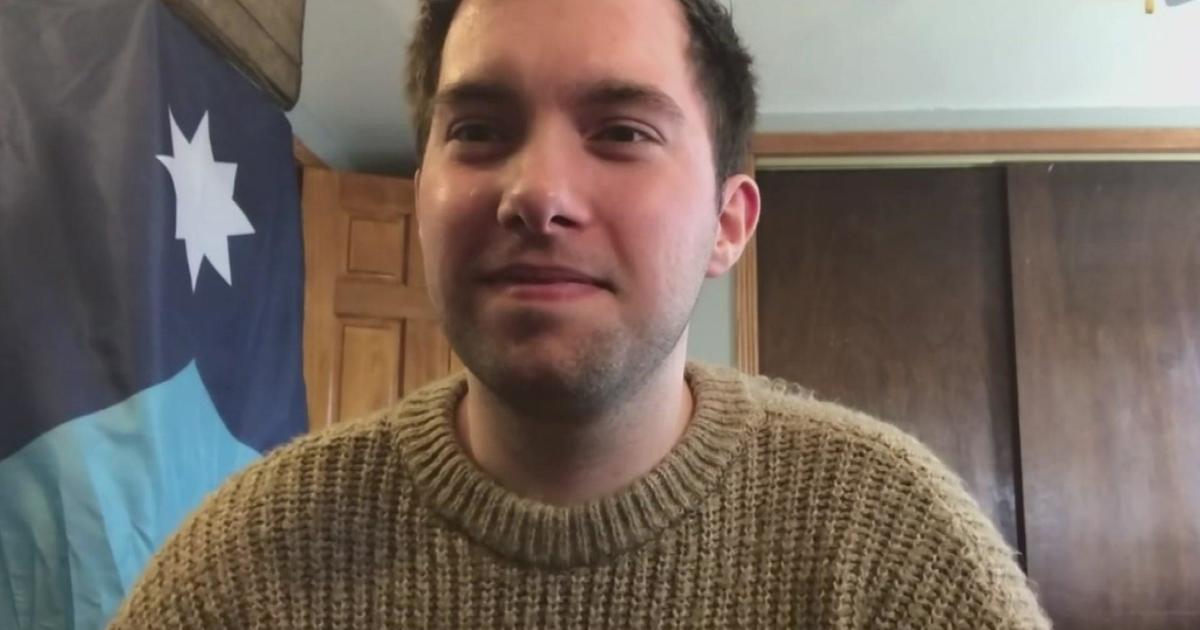Alzheimer's Takes Toll On Doctor And His Family
MINNEAPOLIS (WCCO) - At least half of us already know someone with Alzheimer's Disease, and in the next decade twice as many Minnesotans will be diagnosed.
WCCO is beginning an up-close look documenting the fight one family is in.
Seventy-six-year-old Paul Quinn has what doctors consider to be the earliest detectable stage of Alzheimer's, a disease that slowly destroys memory and thinking skills.
"Paul's goal and our goal as a family is to help people understand what the road is like," Paul's wife, Peg Quinn, said.
He and his family allowed our cameras to capture their daily lives with the diagnosis to see how one man who has helped countless others heal is facing a reality he always feared.
His smarts are envied and his story is exceptional. He's a doctor, an admiral and the center of a Twin Cities family.
We first met Peg and Paul Quinn in January.
"He was bright with a good sense of humor, very good looking," Peg recalled about the day they met.
"She had a good sense of humor," Paul recalled.
"What about the bright part?" Peg asked him.
"That speaks for itself," Paul joked. "Sometimes a little too much."
That sense of humor has been essential to their 50 years of marriage.
Paul grew up on the East Coast.
"He's from New Jersey," his oldest daughter, Mary McCallum, said. "He's Irish Catholic in a town of Italians."
His three daughters were witnesses to their dad's relentless work ethic and wide-ranging curiosity.
"He's always learning, curious about people, curious about trying new things," another daughter, Katie Mack, said. "He's one of the smartest people I've ever met."
Paul graduated from Notre Dame, went to medical school at the University of Michigan and became a family physician at Stillwater Medical Group.
At the same time, he rose through the Navy ranks to the highest position of admiral.
Paul's past is especially important when you get a glimpse of his future.
Paul first noticed memory problems as far back as five years ago.
"Everybody is experiencing it to a certain extent," Peg said. "The question is: Is what you're experiencing different than the average?"
Three years would pass before a diagnosis: Mild Cognitive Impairment, the early stages of Alzheimer's. Half the people with Mild Cognitive Impairment will develop Alzheimer's or another type of dementia within five years.
Dr. Michael Rosenbloom is the clinical director of HealthPartner's Center for Memory and Aging.
"Clearly the cognition is getting worse," Dr. Rosenbloom said. "However, his everyday function is relatively intact."
Rosenbloom has noticed Paul's disease hasn't developed as quickly as other patients.
"I think this has to do with his cognitive reserve," he said. "He's a very intelligent man. Sometimes with these patients you have this sense of denial, but Paul is very quick to say, 'You know what, my memory is impaired.'"
Paul's love for his field motivated him to do more in the fight. Since there's no medication to treat or cure his disease, he's part of a drug study to find one.
"I'm hopeful the trial I'm in will make a difference," Paul said. "If not for me, for other people."
Quinn family get-togethers are filled with the chaos of 12 grandkids.
"It's best to observe, not to participate," Paul joked. "It's safer."
Subtle reminders of Paul's struggle are felt by the whole family.
"Sometimes he kind of forgets who I am," one granddaughter told us.
"It kind of worries me, because I do know it will get worse over time," another said.
Two months after we first met Paul, he's having trouble remembering his grandkids' names.
"I'm in a situation where it's, 'Who is this? Who is that?' and then I'm scrambling and not coming up with anything," Paul said.
His honesty has to do with what he's already been through.
"My mother developed Alzheimer's," he said.
Several family members have shared the same fate.
Family history does play a role. Doctors have determined the risk for Alzheimer's increases if more than one person has had it in a family. But age is the biggest factor of all. After turning 65, the likelihood of developing the disease doubles ever five years.
Two years into his diagnosis, Paul still has a remarkable long-term memory. Doctors consider it a common misconception: While patients are losing their short-term memory, their long-term memory becomes more prominent.
"I have a lot better recollection of things of the past then the things of the now," Paul said.
Another daughter, Ann Vance, acknowledged it's been difficult for all of them.
"He came to my daughter's hockey games and he must have asked 10 times who they were playing, and mom looked at me and she said, 'This is my day, all day every day,'" Vance said.
It's why doctors often glean the most insight from a patient's caregiver to see how a person is progressing.
"The hardest part in the whole thing is seeing her," Katie Mack said about watching her mom go through it. "The nice part about Alzheimer's is he doesn't really know how bad he is."
The Quinns want to share their story to remind others they are not in this alone. It's a candid approach to their new reality that's clear in even the smallest of voices.
"I hope that it doesn't get really bad so he starts forgetting us," one granddaughter worried.
Doctors say being proactive about a diagnosis is important. Less than half of the people with Alzheimer's are diagnosed by their doctor. An honest diagnosis allows the person to plan for the future with their family. Some drugs may temporarily improve symptoms.
The Alzheimer's Association staffs a 24/7 hotline for anyone to call with questions about the disease, 1-800-272-3900.



